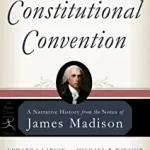Education has always been a hot topic, and it probably should be. Teaching racial history is the current controversy, and I can’t imagine any justification for not teaching it—which does not mean uncritically adopting anybody’s theories about the nature of the white race. It’s too bad this needed conversation about how we are educating our children to be citizens in a democracy is being conducted by the extremists, right and left, when it needs a critical look by everyone.
The individual versus community pendulum has swung so far to the individualist side that when I asked a group of college freshman to identify their obligations to the community, they stared at me dumbfounded. Several did manage to come up with voting, then a male or so mentioned serving in the military in time of war. I then asked whether their parents were members of volunteer organizations, which brought a scattering show of hands and unlocked the discussion a bit, but clearly the topic was new to them. They were adamant that the role of government was to serve them—to preserve their rights. That was twenty-five years ago.
Civics classes, even in my youth, were limited to a single credit, a single term, and I have no memory of what they contained, other than a purely factual account of the structure of the government; clearly, the subject was unimportant. The “citizenship” marks we received in elementary school have probably been more effective in teaching behavior, and the community field trips that my children went on were a great improvement over my childhood, where they were unheard of. Indeed, in my day, community service was left to the Scouts. Behavior and exposure are a good start, but secondary school needs to teach not just the facts, but also the principles that underlie the government they live under. The Covid pandemic has made glaringly clear that much of the citizenry lacks any sense that the public has rights.
I know that my own high school education was peculiar. I attended “The College” at the University of Chicago—an experimental program founded by Robert Maynard Hutchins who believed that students could start college work in their junior year of high school. “College work” meant learning from original documents, including philosophical works in all fields. The College still exists today, though I’m not up-to-date on its curriculum. Though I think the program in my day was needlessly extreme, I ended up with a well-grounded knowledge of the principles that ground all fields and a facility with abstract thinking I found sadly lacking in the college students I taught in later years. And, most importantly, the Social Science courses gave me a thorough understanding of power, its distribution and consequences.
According to a Northwestern graduate who came down to the South Side to interview us, we were all known as a bunch of geeky geniuses, which I’m certainly not, nor do I think you have to read Aristotle to understand principles. The college freshmen I taught for years were well able to learn abstract thinking—as we were as high school juniors. Today’s students need to understand that the central principle—power corrupts and absolute power corrupts absolutely—underlies our democracy, and the tri-part distribution of power—executive, legislative, judicial–are intentionally designed as checks on power. They need to understand that compromises between opposing beliefs both created our Constitution and led to its one failure, which led to the Civil War. They also need to understand that responsibility for preserving the institutions rests with us.
They would understand then, that these are human institutions designed to reach the goals of equality of power, freedom from oppressive power, and justice, but these ideals are goals—not entitlements. Citizens are entitled to the equality of rights that has been achieved thus far, not perfection—welcome to the struggle. That our beliefs about equality have changed since 1787 is the result of a Civil War and a long struggle to change attitudes. To blame today’s white citizens for the beliefs of white men in 1787 is to ignore both the struggle and the change.
They would also understand that respect for the rights of the public is not a choice. The institutions that have been created by elected representatives protect the public have the authority to do so. Citizenship demands we accept that authority. It’s not a choice. Protesting the one’s voice is not being heard is one thing. Taking it upon oneself to ignore respecting others is another.
To achieve understanding of these central principles requires seriously engaged teaching and a curriculum that recognizes the values that bind us together as much as the value of individual achievement. Both have been neglected. In both secondary education and beyond, the value of general education needs to be seriously rethought.


Once again, I urge you to submit this as an op Ed piece to the New York Times. This is a remarkable article.